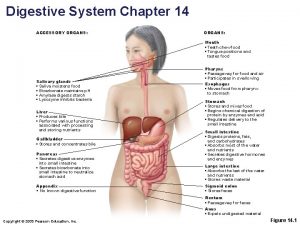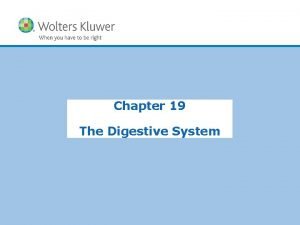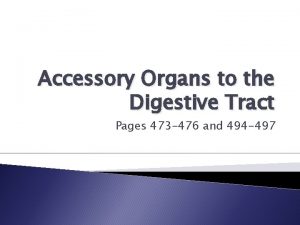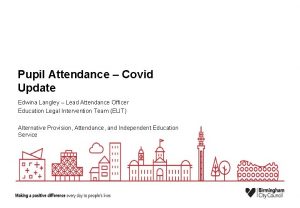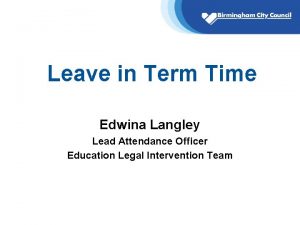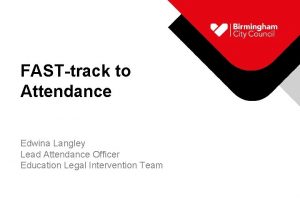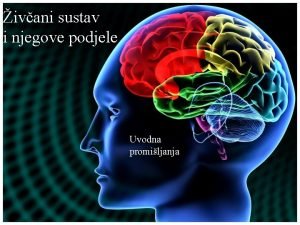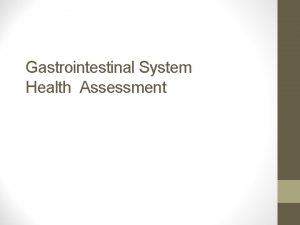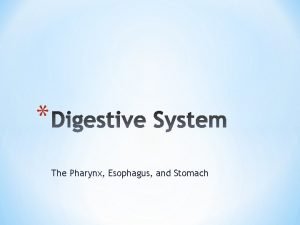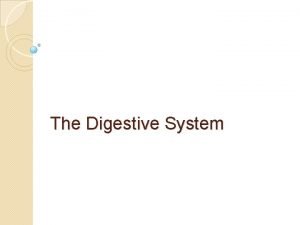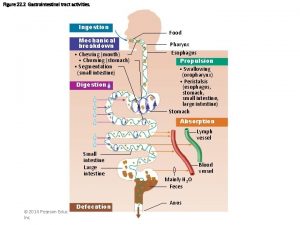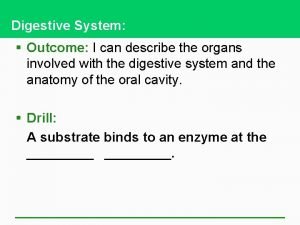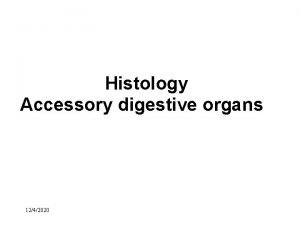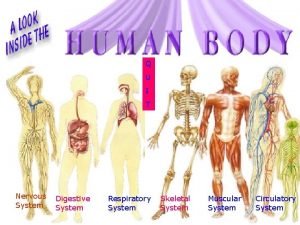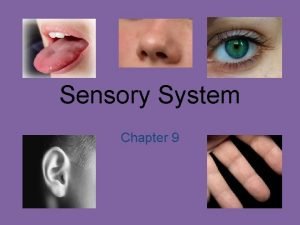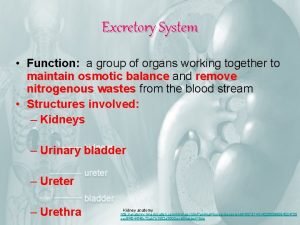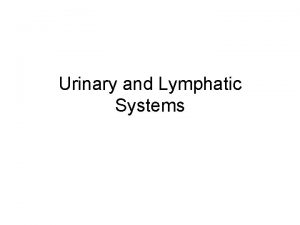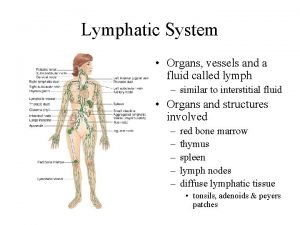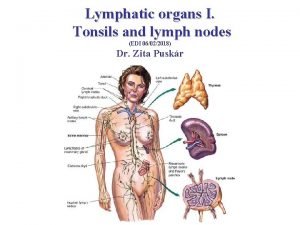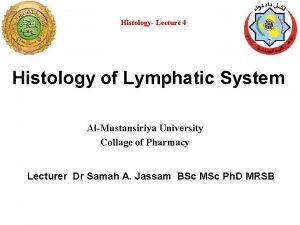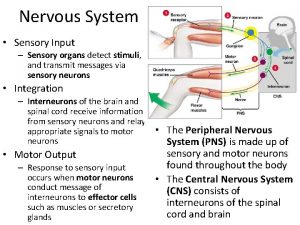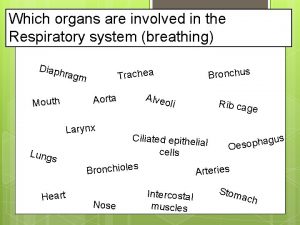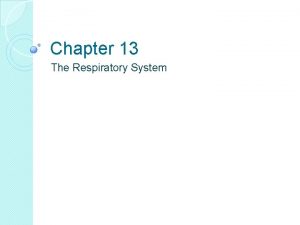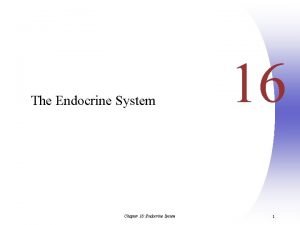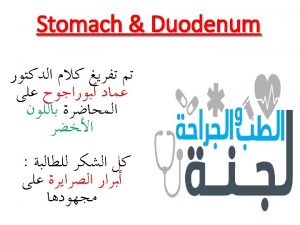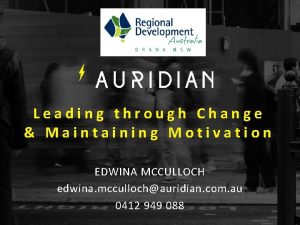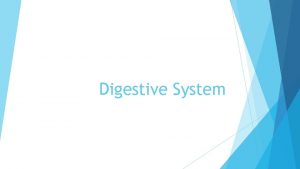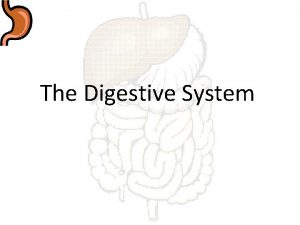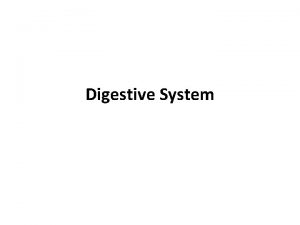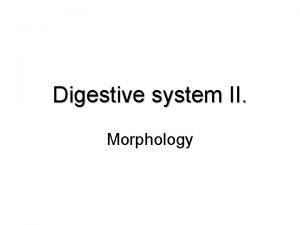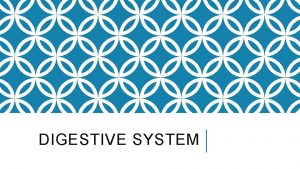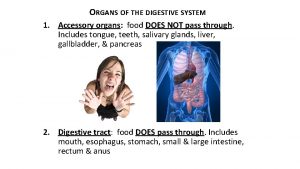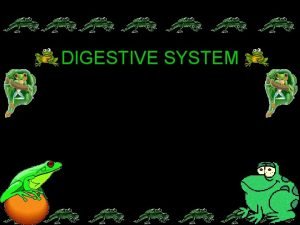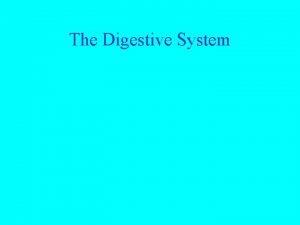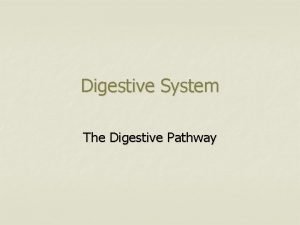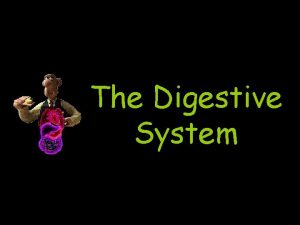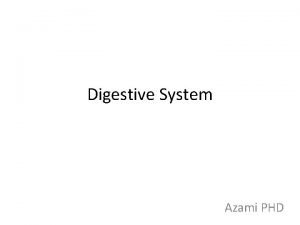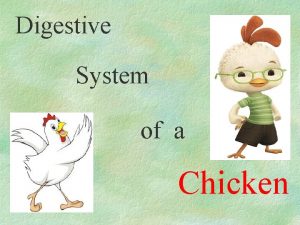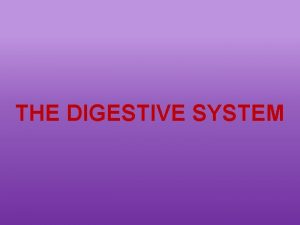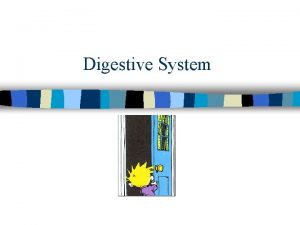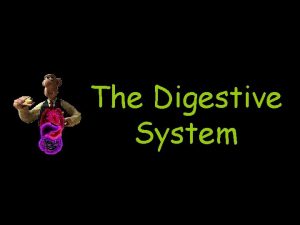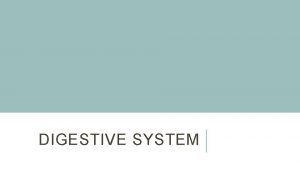The Digestive System Ms Edwina Organs Oesophagusgullet Stomach





























- Slides: 29

The Digestive System Ms. Edwina

Organs • • • Oesophagus/gullet Stomach Small Intestine Large Intestine Liver Rectum

Oesophagus • the tube that connects your mouth and your stomach • Also known as your gullet.

Stomach • A stretchy bag that holds your food after you eat. • Helps to break food into smaller pieces so your body can use it for energy and nutrition.

Esophagus Stomach

Small Intestine • Tube that is 20 feet long. • Continues to digest food • Food stays in your small intestine for 4 to 8 hours

Small Intestine

Large Intestine • Tube that is 5 feet long. • Gets waste from small intestine. • Waste stays for 10 to 12 hours.

Large Intestine

Gall Bladder • Storage tank for bile (a greenishyellow liquid) that helps your body break down and use fats. • Located under your liver. • Shaped like a pear.

Gall Bladder

Liver • Factory for antibodies and bile. • Stores vitamins and sugars until your body needs them.

Liver

The Process

First Organs of the Digestive The mouth and teeth are the first organs of the digestive tract. q. The teeth are bones whose main purpose is to grind food into bits that the body can digest. q. Saliva helps begin to break down food.

The Oesophagus q The Oesophagus runs from the pharynx to the stomach. q The Oesophagus is about 25 cm ( 10 inches) long. q The Oesophagus is really a large muscle which pushes food down to the stomach.

The Stomach q The stomach is a J- shaped muscle. q The stomach acts as a churn. q Chemical breakdown of food begins in the stomach.

The Small Intestines q The small intestine is the main organ of the digestive tract. q The small intestine absorbs processed food into the bloodstream to deliver to the cells. The unabsorbed food then passes to the large intestine.

Large Intestines q The large intestine is about 5 feet long. q The main job of the large intestine is absorb water and to get rid of unwanted materials.

Healthy Habits • Eat foods that are high in fiber like fruits and vegetables.

• Drink plenty of water

• Chew your food completely before you swallow

Avoid foods high in fat

Interesting Facts • Food is in your digestive system for about 24 hours

• Your stomach stretches when you eat like a balloon being filled with air.

• You have a trap door to cover your windpipe when you swallow.

• Your stomach mashes your food the way a baker kneads dough for bread.

Summary Functions • Digests food • Absorbs nutrients for the body • • • Components Esophagus Stomach Small intestine Large intestine Liver Gall Bladder

Summary Healthy Habits • • Eat high fiber foods Drink lots of water Chew food well Avoid high-fat foods
 Major and accessory organs of the digestive system
Major and accessory organs of the digestive system Accessory organs of the digestive system
Accessory organs of the digestive system Digestive accessory organs
Digestive accessory organs Edwina langley birmingham
Edwina langley birmingham Edwina langley birmingham
Edwina langley birmingham Edwina langley birmingham
Edwina langley birmingham Papirus edwina smitha
Papirus edwina smitha Percussion abdominal assessment
Percussion abdominal assessment Picture of stomach organs
Picture of stomach organs What moves the food in the digestive organs
What moves the food in the digestive organs Microscopic anatomy of the stomach
Microscopic anatomy of the stomach Internal organs
Internal organs Sinusoids
Sinusoids Digestive system respiratory system and circulatory system
Digestive system respiratory system and circulatory system Nervous system and digestive system
Nervous system and digestive system Sensory system organs
Sensory system organs Process of excretory system
Process of excretory system Lymphatic system organs and functions
Lymphatic system organs and functions Lymphatic system organs
Lymphatic system organs Lymphoid tissue
Lymphoid tissue Function of lymphatic system
Function of lymphatic system Organs of the sensory system
Organs of the sensory system Which organs are involved in respiratory system
Which organs are involved in respiratory system Chapter 13 the respiratory system
Chapter 13 the respiratory system Endocrine
Endocrine Hát kết hợp bộ gõ cơ thể
Hát kết hợp bộ gõ cơ thể Frameset trong html5
Frameset trong html5 Bổ thể
Bổ thể Tỉ lệ cơ thể trẻ em
Tỉ lệ cơ thể trẻ em Chó sói
Chó sói
